The Versatile Machines Excavators That Make Construction Possible
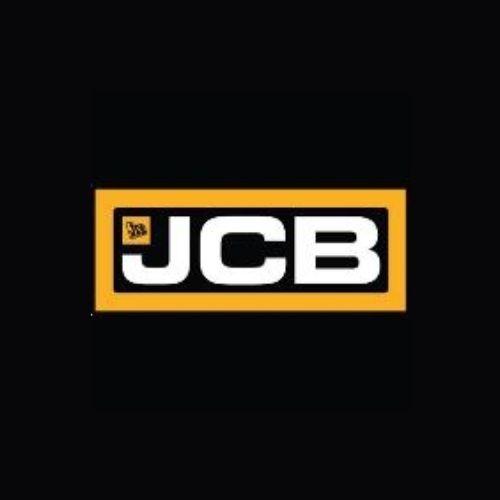



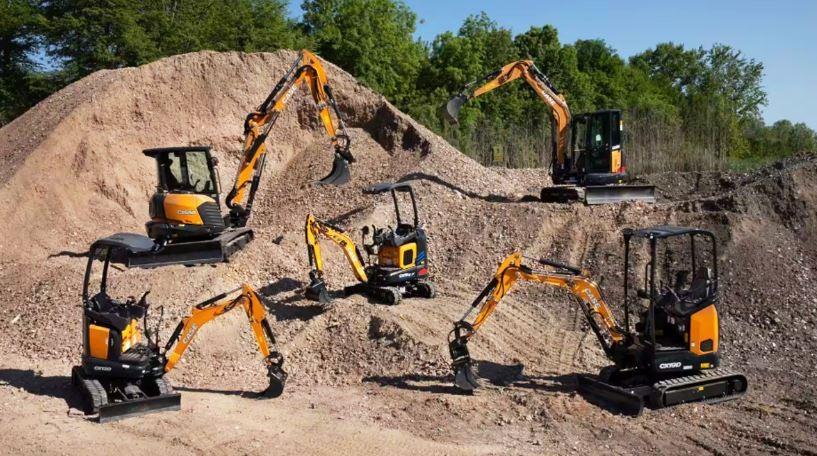
In the realm of heavy machinery, few vehicles hold the same awe-inspiring power as excavators. These mechanical behemoths have become an indispensable part of modern construction, enabling us to dig, move, and shape the earth with remarkable precision. From massive infrastructure projects to delicate digging operations, excavators have revolutionized the way we approach construction.

•
• Excavators are one of the most versatile pieces of heavy equipment in the world. They can be used for a wide variety of tasks, from digging to lifting to demolition. In fact, there are so many different types of excavators that it can be hard to know which one is right for the job.
• This blog by the experts of JCB Excavators dealers look at the different types of excavators, their uses, and how to choose the right one for your needs.

What Is An Excavator?
• An excavator is a heavy construction machine that consists of a cab, bucket, arm and boom. The boom is the long, horizontal arm that extends from the cab. The arm is attached to the bucket, which is used to dig, lift, and move materials. Whether it’s digging trenches, foundations, or basements, excavators excel at removing soil and creating cavities with ease. Their hydraulic systems enable operators to control the force and speed of their bucket, allowing for precise excavation.


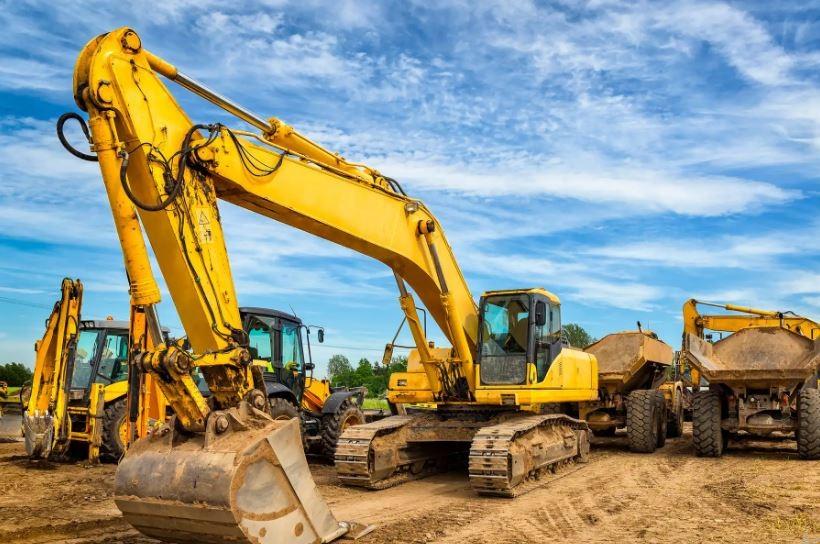
Types Of Excavators
• Excavators, also known as diggers or hydraulic excavators, are hydraulicpowered machines designed for heavy-duty construction tasks. They consist of a cab, a boom, a dipper (or stick), and a bucket, all mounted on a rotating platform called the house. Excavators are capable of rotating a full 360 degrees, providing unmatched manoeuvrability and reach.
• There are many different types of excavators, each designed for a specific purpose. Some of the most common types of excavators include:


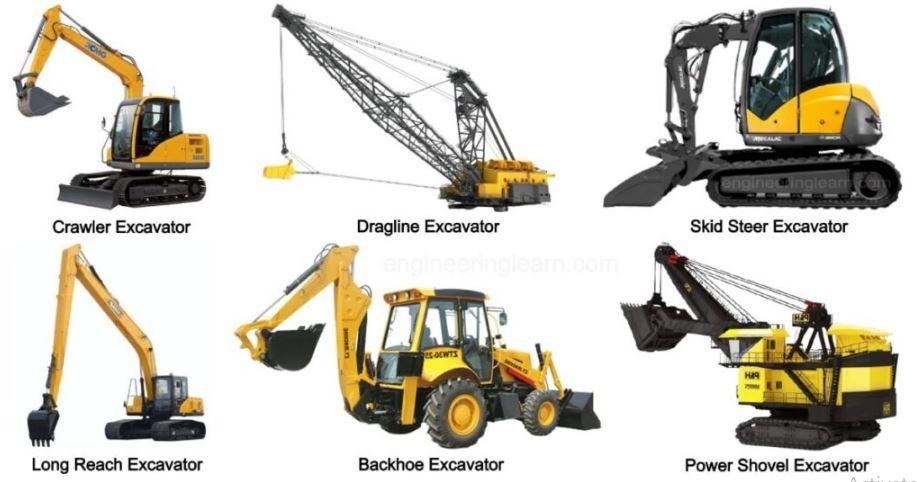
Wheeled excavators
• These excavators are the most common type. They are typically used for light-duty tasks, such as landscaping and digging small trenches.


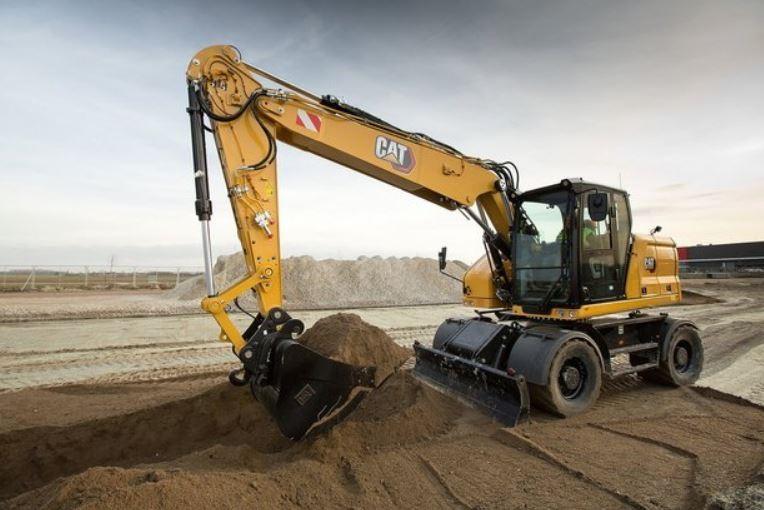
Tracked Excavators
• These excavators are more powerful than wheeled excavators and are typically used for heavy-duty tasks, such as excavating foundations and moving large rocks.


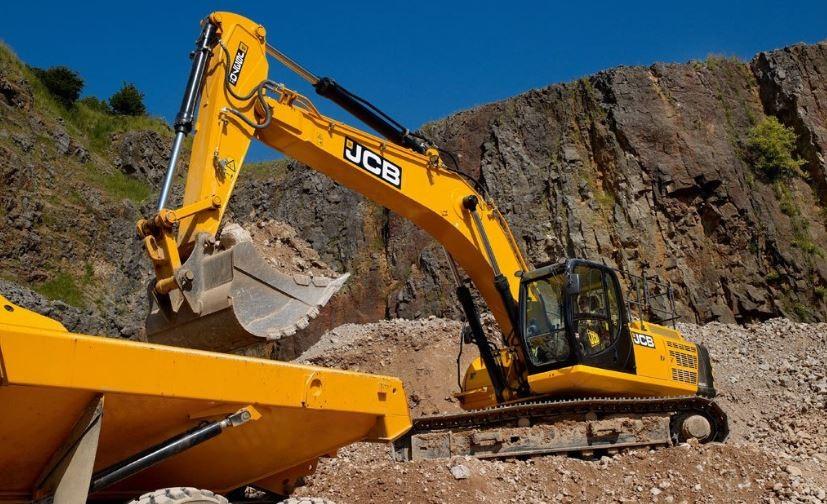
Mini Excavators
• These excavators are small and compact, making them ideal for working in tight spaces. They are often used for landscaping, demolition, and underground utility work.


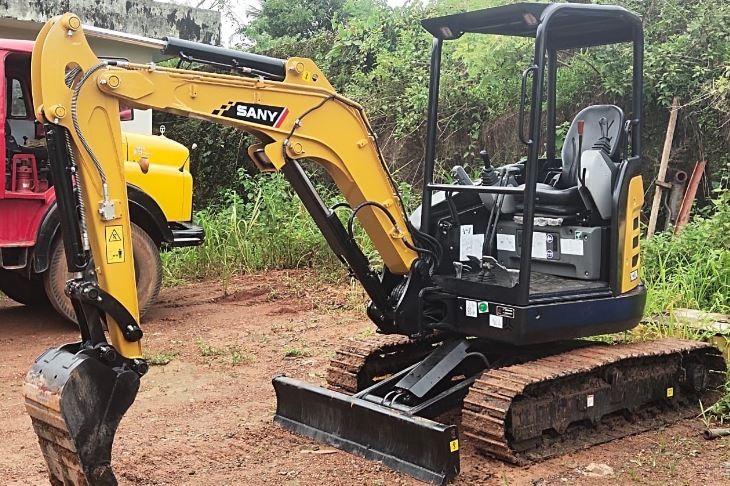
Hydraulic Excavators
• These excavators use hydraulic power to operate the boom, arm, and bucket. They are the most common type of excavator and are used for a wide variety of tasks.


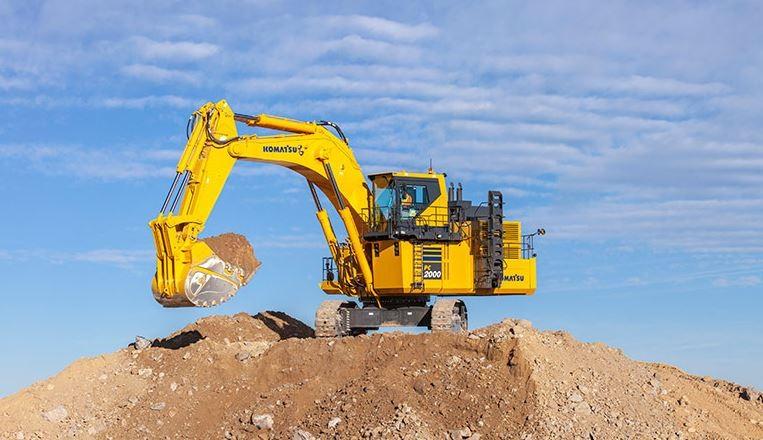
Rigid-frame Excavators
• These excavators have a fixed frame, which makes them more stable than hydraulic excavators. They are typically used for demolition and heavy-duty construction work.


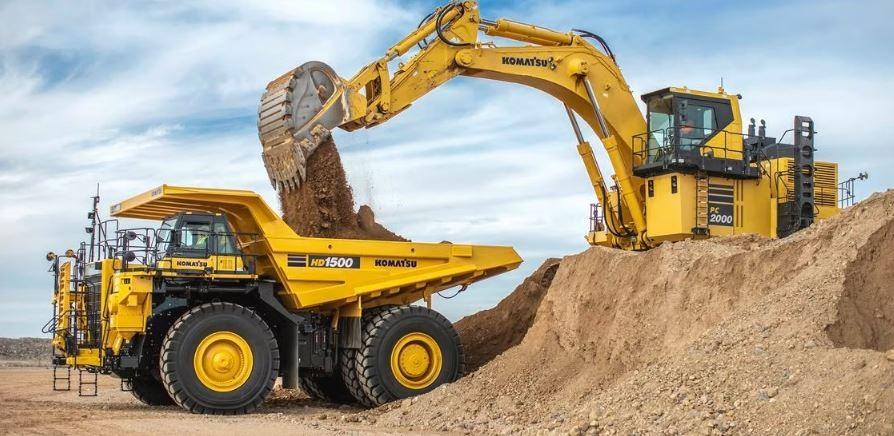
Uses Of Excavators
• One of the key reasons excavators are revered in the construction industry is their exceptional power and performance. Equipped with powerful engines and hydraulic systems, these machines can lift, dig, and move substantial amounts of material with remarkable precision.

Excavators Can Be Used For A Wide Variety Of Tasks, Including:

• Digging – Excavators are used to dig trenches, foundations, and other types of excavations.
• Lifting – Excavators can be used to lift and move heavy objects, such as rocks, trees, and construction materials.
• Demolishing – Excavators can be used to demolish buildings, structures, and other objects.
• Material handling – Excavators can be used to load and unload materials, such as dirt, rock, and gravel.
• Underground work – Excavators can be used for underground work, such as tunnelling and pipelaying.

How To Choose The Right Excavator?

• When choosing an excavator, there are a few factors to consider, including the size of the job, the type of terrain, and the budget.
• Size of the job – The size of the excavator will depend on the size of the job. For small jobs, a mini excavator may be sufficient. For larger jobs, a tracked excavator may be needed.
• Type of terrain – The type of terrain will also affect the type of excavator you need. For example, if you are working in a rocky or uneven terrain, you will need a tracked excavator with a wider track base.
• Budget – Excavators can range in price from a few thousand dollars to several hundred thousand dollars. It is important to set a budget before you start shopping for an excavator.


Contact • Pasco JCB • Add – Plot no. 3A, situated at sector 6, Ballabgarh, Faridabad, Haryana, 121006 • Call - +91-8920397574 • Email – pasco@pascojcb.com • Website - https://www.pascojcb.com/














